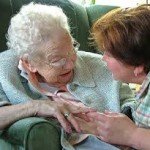Music & Neurosciences V – Blog 9 (Music and Dementia)
Hello Dear Reader
The last blog of Music and Neurosciences V (Day 4) covers the final symposium of the event, which focused on Music Cognition and Dementia. This symposium was organised by my colleague Andrea Halpern and one of her collaborators, Jason Warren.
I was looking forward to this symposium given the focus on music and memory.
 “Dementia” is not a single disease. It is a term that represents roughly 100 different conditions, including Alzheimer’s. Dementia currently affects about 10% of those over 65 years of age, and 47% of those over 85. Based on current projections, with an ageing population, the raw numbers of people dealing with dementia are only going to grow. This is therefore a topic of the highest relevance for us all.
“Dementia” is not a single disease. It is a term that represents roughly 100 different conditions, including Alzheimer’s. Dementia currently affects about 10% of those over 65 years of age, and 47% of those over 85. Based on current projections, with an ageing population, the raw numbers of people dealing with dementia are only going to grow. This is therefore a topic of the highest relevance for us all.
Lola Cuddy (editor of Music Perception) gave the first talk. Lola was kind enough to mention to me in passing – after her talk –that she reads and enjoys this blog. This absolutely made my day, as you might imagine!
Lola reported on her work with Alzheimer’s Disease patients (AD). AD has three broad stages of progression, from mild through to moderate and finally, a severe state. Lola has conducted research studies with patients from all these stages.
She showed a wonderful video of a patient known as EN, a lady in her 80s who at the time of filming had severe AD. EN had a very low score on a test of mental state (MMSE 8/30) but she still enjoyed music. She performed above chance on all the music memory tests that she was given and from the video is was clear that she reacted instantly to changes to familiar melodies.
EN’s lovely smile reminded me of my dear recently departed Grandmother.

Lola reminded us that the kind of music memory we see spared in AD is a form of semantic memory, not episodic memory. The music (familiar tunes) and music structures (tonality) that these patients can still access form part of their memory for ‘facts’ rather than episodes in time – the latter are largely lost.
I have no idea if there is any work in this area but it would be interesting to see if music memory function is impaired in patients with semantic dementia.
The next speaker was Jason Warren, a neuroscientist who is interested in probing social cognition function using music in dementia patients. Jason works with patients who have a very different form of dementia to AD, termed fronto-temporal dementia (FTD). These patients present with a reduced ability to recognise and react appropriately to emotion.
The question for the talk was, do their muted reactions to emotion apply to music too?
 Jason showed data that FTD patients have supressed responses to all types of emotion presented as faces, vocal sounds, or music. Interestingly though, their performance was especially poor in music. This meant that their muted responses to emotional music were the best predictor of correct group membership, in identifying their condition.
Jason showed data that FTD patients have supressed responses to all types of emotion presented as faces, vocal sounds, or music. Interestingly though, their performance was especially poor in music. This meant that their muted responses to emotional music were the best predictor of correct group membership, in identifying their condition.
As a contrast, and just to underlie the variety in clinical populations, Jason talked about (rare) cases of musicophilia in FTD patients, people who develop a sudden passion for music that was not there before their illness. These patients may have a special spared area of function in the hippocampus that appears to underlie this unique presentation of FTD.

The third talk was a concise summary of a new project conducted by Andrea Halpern. Andrea presented a summary comparing the manifestations of AD and Parkinson’s disease (PD).
1) AD is association with cognitive impairments but preserved motor function while PD is the opposite.
2) AD has hippocampal damage as a primary presentation, PD features damage to the basal ganglia.
3) AD is associated with dysfunction in acetylcholine while PD damages dopamine function.
Andrea showed preliminary evidence from two studies that are running in London right now. The first looks at auditory imagery ability in AD. New data from this work suggests that music perception ability might be impaired in AD, while musical imagery might be preserved. This final result of this study will help narrow down the possible surviving brain pathways that support music memory in AD.
 Andrea’s second study looks at auditory executive function in PD; the ability to suppress one sound (or aspect of a sound) and focus on another. Her paradigm is a little complicated to explain but involves asking patients to focus on either a pitch or timbre judgment (same/different) when the other aspect of the music is kept either constant or varied.
Andrea’s second study looks at auditory executive function in PD; the ability to suppress one sound (or aspect of a sound) and focus on another. Her paradigm is a little complicated to explain but involves asking patients to focus on either a pitch or timbre judgment (same/different) when the other aspect of the music is kept either constant or varied.
The underlying finding for this study to date is that PD is associated with a slowing of around 40% in decisions relating to complex auditory stimuli that require suppression.
This result suggests there may be an auditory executive dysfunction in PD.
The final talk was by Severine Samson who spoke about 3 of her studies where she trialled musical interventions in care homes. She compared musical interventions to a cooking class (and a baseline condition in the 3rd study). To date the data suggest that there is nothing unique about the musical intervention, as the cooking appears to provide as many benefits to the measured outcomes, such as mood and cognitive ability.
A note on this final talk came while speaking to music therapy colleagues after the session. They were concerned that the above music interventions were run by musicians who had an interest in care – not music therapists. I can see their point and would prefer to see music interventions trialled with properly trained individuals.
And that was it! End of the Music and Neurosciences V.
 After this final session we had a brief wrap up from the organizers and headed for our final lunch and poster session. Sadly I could not stay too long as I had to catch the TGV back to Switzerland.
After this final session we had a brief wrap up from the organizers and headed for our final lunch and poster session. Sadly I could not stay too long as I had to catch the TGV back to Switzerland.
But I left Dijon with a head full of new ideas and wonderful memories of good times – tired but inspired.



3 Comments
Pingback:
Yune
Hi Vicky,
I enjoy reading your blog and always look forward to the next article.
See a case study done by a former lab colleague:
http://www.ncbi.nlm.nih.gov/pmc/articles/PMC3268521/
vicky
Thank you for the kind complement and the link – both are much appreciated. All the best, Vicky